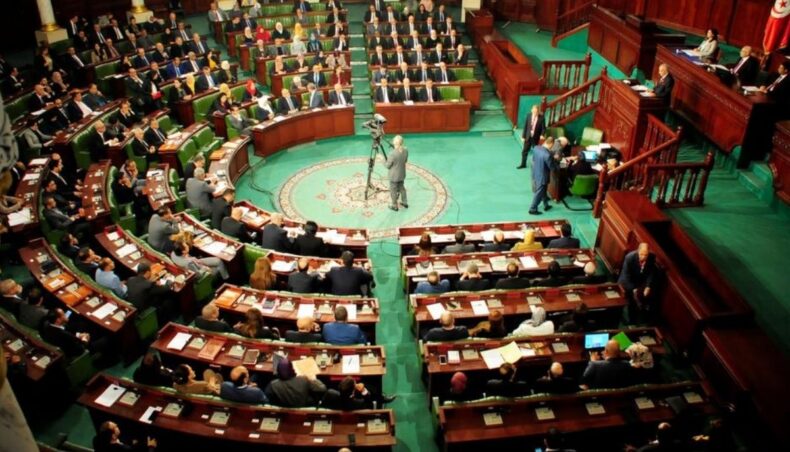Sadok Belaid, a former professor of constitutional law, claims that certain constitutional provisions in the new constitution of Tunisia could lead to a “disgraceful totalitarian administration.”
According to the local Assabah daily, the chairman of Tunisia constitution committee has denounced the document President Kais Saied offered this week.
The “new constitution for the new republic” was to be written by Sadok Belaid, a former constitutional law professor. Saied’s version, according to Belaid, was dangerous and dissimilar from the initial text suggested by the constitution committee.
According to Belaid, chapters in the president’s final draft of the constitution may open the door to “a disgusting authoritarian dictatorship.”
He stated in a letter that was published by the Assabah newspaper that
“it is our obligation to strongly and truthfully disclose that the constitution that was officially published… and put for referendum is not relevant to the constitution we prepared and sent to the president.”
Since he published the constitution’s text in Tunisia’s official gazette on Thursday, the president has not made any comments about it. A referendum on the new constitution, which would give Saied much more authority, will be held the following month.
The influential UGTT union’s leader stated on Saturday that the draught constitution would endanger the nation’s democracy.
Anyway, the union, a significant political force with more than a million members, declared that it would give its members the freedom to cast their votes however they pleased regarding Saied’s proposed constitution.
In a referendum on July 25, voters will be asked to ratify the constitution.
‘One Man Rule’
Saeid assumed executive control in July, fired the prime minister, and froze parliament due to Ghannouchi’s decision. Ennahdha referred to this action as a coup.
Nevertheless, he has been called upon to resign from the leadership of his party, which is the largest in the Tunisian parliament, as a result of disagreements over how it handled the crisis and his tactical decisions made since a 2019 election.
According to a statement from the party, “Ennahda’s leader decided to fire the party’s executive members and restructure it in a way that responds to the necessities of the moment.”
Saied has ruled by decree since last year, when he moved toward one-man rule and declared his intention to reshape the political system, brushing aside the parliament and the democratic 2014 constitution in a move his detractors labeled a coup.
A month after Saied’s unexpected intervention, he has yet to choose a new prime minister or make public the road map that Western friends and important Tunisian players, like the potent UGTT Union, have sought.
According to Saied, the country needed his involvement to prevent its collapse.
Of Tunisia, where years of bad government, corruption, and political stagnation have been made worse by a lethal uptick in COVID-19 cases, he appears to enjoy broad popular support.
However, some Tunisians are worried about the survival of the democratic system that was adopted following the country’s 2011 revolution that started the Arab Spring as a result of the president’s actions.
Since then, authorities have put a number of people under house arrest, including former ministers, and banned politicians and businesspeople from traveling.
Saied ran for office in 2019 on a platform of fighting corruption.
The UGTT claimed that although the liberties and rights chapters in the proposed constitution were intact, they could be threatened by some limits and violated because there were no guarantees.
‘Ultimate authority over everyone’
Saied will have complete control over the executive branch and judicial system under the draft constitution published in the official gazette.
Parliament used to play a more prominent role in the political process, directly appointing the government and passing laws.
The administration would report to the president rather than to parliament under the proposed new constitution, albeit the chamber may do so with a two-thirds majority.
Saied would have the authority to propose treaties, create state budgets, offer proposed legislation, appoint or dismiss government ministers, and appoint judges.
Political pundit Cherif El Kadhi said that Belaid and others rejected the proposed constitution draught out of what they termed as a sense of duty to the Tunisian people while speaking from Tunis.













